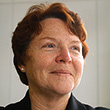
Montgomery County Executive, Ike Leggett, has named Sally Sternbach Acting Director for the Department of Economic Development effective January 3, 2015.

Health Canada has accepted US-based Sucampo Pharmaceuticals' New Drug Submission (NDS) for Amitiza (lubiprostone), 24mcg capsules, to treat chronic idiopathic constipation (CIC) in adults and opioid-induced constipation (OIC) in adults with chronic non-cancer pain.

The pharmaceutical giant Roche has paid an undisclosed price to acquire Bina Technologies, a bioinformatics company. The move sees Roche expand further into the life sciences sector.
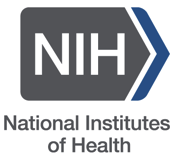
On Thursday, January 15, 2015 from 4-6:30 pm there will be an open house for the spring courses in the "Advanced Studies in Technology Transfer" program at the Foundation for Advanced Education in the Sciences (FAES) Graduate School at NIH in the new Classroom & Bookstore complex in NIH Building 10 / B1 level. For the semester beginning on January 26, 2015 there will be 14 courses offered with details available in the new 2014-15 course catalog ( www.faes.org ). The Advanced Studies in Technology Transfer is an open enrollment program with class credits transferable into various university MBA & MS degree programs. The technology transfer classes will be held at the offices of the NIH Office of Technology Transfer in Rockville as well as the NIH main campus in Bethesda.

United Therapeutics Corporation (NASDAQ: UTHR) announced today the signing of an agreement with DEKA Research & Development Corp. for the development of a potential technology breakthrough in the subcutaneous delivery of Remodulin® (treprostinil) Injection to patients with pulmonary arterial hypertension (PAH) via a pre-filled semi-disposable pump system.
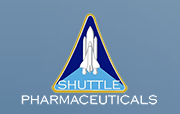
SHUTTLE Pharmaceuticals, a privately held company, today announced it has been awarded a fast-track Phase I/II contract #HHSN261201400013C by the National Institutes of Health (NIH) under its Small Business Innovation Research (SBIR) program. The $ 1.62 million contract will fund the initial development of IPdR (5-iodo-2-pyrimidinone-2-deoxyribose), a prodrug of the radiation sensitizer IUdR (5-iodo-2-deoxyuridine). The contract is to determine the scientific merit, feasibility and potential for commercialization of oral IPdR for use as a radiation sensitizer for the treatment of rectal cancers. The NIH contract provides funds to cover a portion of the costs for initiating a Phase I trial in GI cancers and development of companion diagnostics for analyzing clinical specimens from Phase I patients.

Roche Holding AG said US health regulators have approved its Ebola test for emergency use in response to the world's worst outbreak of the disease in West Africa.
The US Food and Drug Administration (FDA) has approved Roche’s LightMix Ebola Zaire rRT-PCR Test for use on patients with signs and symptoms of Ebola Zaire virus infection, the Swiss drugmaker said in a statement.

Two-thirds of a wide variety of cancer kinds are largely rooted in undesirable genetic luck and not simply the benefits of traits passed down from parents or risk components like smoking or diet program, according to a new study. Random mutations in DNA are largely accountable for the majority of cancers in humans, according to researchers at Johns Hopkins University in Baltimore.

Outgoing D.C. Mayor Vincent Gray gave the city's tech scene some love as one of his final acts, signing a somewhat controversial tax cut into law. The capital gains tax on returns from investments in certain tech companies was lowered to 3 percent.
Here are a few thoughts on the cut from techs I spoke with...
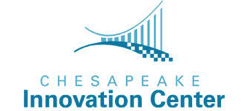
Anne Arundel County's economic development chief took to LinkedIn in search of a new executive director of the Chesapeake Innovation Center — and he's dangling a big carrot.
Robert L. Hannon, president and CEO of Anne Arundel Economic Development Corp., is spreading the word that he's looking for an executive director for the agency's technology incubator who has a background in small-business/technology development, technology commercialization, entrepreneurship and five years professional work experience. The position's salary will range from $110,000 to $130,000, with an estimated benefits

The CMS Innovation Center paid $2.6 billion through September to hospitals, doctors and others through nearly two dozen programs that tested new ways to deliver healthcare and pay for it.
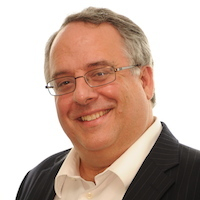
Here are my 10 crucial pieces of advice for students who aspire to a career in pharmaceutical labs:
1. You need a solid foundation in science. Master the basics, and learn how to apply that knowledge.
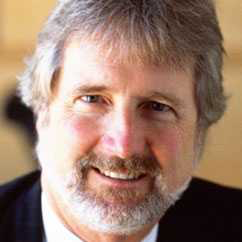
Biotechnology will have a strong year in 2015, but it can’t get any better than 2014, biotech investor G. Steven Burrill says in his annual year-end report.
“The unprecedented IPO (initial public offering) and M&A (mergers and acquisitions) activity this year will make 2014 one for the record books and unlikely to ever be surpassed,” Burrill said.

With 41 novel drug approvals under the regulators’ belts last year, 2014 represented an 18-year high for the Food and Drug Administration – including a record number of okayed meds for orphan diseases, the Associated Press says...

A new business incubator in Baltimore's Inner Harbor will cater to startup companies launched through universities.
The Institute of Marine & Environmental Technology in January is opening a 4,300-square-foot incubator in its offices at the Christopher Columbus Center in Baltimore's Inner Harbor.

Campus Technology is looking for innovative colleges and universities that have deployed unique technology solutions to campus challenges.
Nominations are now open for our tenth annual Campus Technology Innovators Awards, recognizing institutions, technology project leaders and vendor partners that have used technology in new ways to support teaching, learning, administration and operations. The deadline for entries is Feb. 17.

Finding funds for early stage companies has always been a great challenge. In past venture financing cycles, it's been the gap between the first venture financing (Series A) and the growth capital or mezzanine financing that many emerging companies were unable to bridge. This gap, called the "valley of death," was attributed to a number of factors, but that valley of death has shifted in important ways in the recent past.
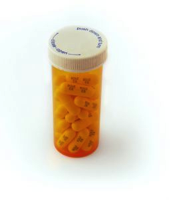
U.S. drug approvals in 2014 hit their highest level in 18 years and recommendations in Europe also came at a rapid rate, driven by expensive new treatments for cancer and rare diseases.
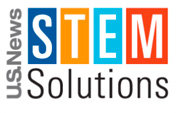
U.S. News & World Report is pleased to announce the 2014 STEM Leadership Hall of Fame, honored during the U.S. News STEM Solutions conference. In choosing the honorees, U.S. News sought out leaders who, among other things, have achieved measurable results in the science, technology, engineering, and math fields; challenged established processes and conventional wisdom; inspired a shared vision; and motivated legions of aspiring STEM professionals.
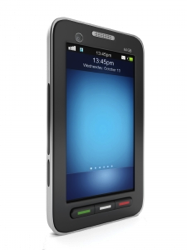
Governmental agencies face a wide spectrum of challenges in creating mHealth apps, ranging from a changing development culture to potential litigious issues, revealed a new report published in the Journal of Medical Internet Research.

Last spring Laura Murphy, then 28 years old, went to a doctor to find out if a harmless flap of skin she had always had on the back of her neck was caused by a genetic mutation. Once upon a time, maybe five years ago, physicians would have focused on just that one question. But today doctors tend to run tests that pick up mutations underlying a range of hereditary conditions. Murphy learned not only that a genetic defect was indeed responsible for the flap but also that she had another inherited genetic mutation.

Ah, the elevator pitch. A favorite tool of the networking masses. A rite of passage of sorts. You’ve heard the scenario: you step into an elevator and go up one floor. The elevator doors open and in walks the client of your dreams. They start some small talk and ask, “What do you do?” and you’ve got the rest of the elevator ride to respond. How do you answer that in 20 seconds in such a way that gets them interested? The answer is simple. You need an elevator pitch for your elevator pitch.
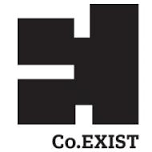
In 2014, wearable health tracking devices continued to get more creative, going far beyond simple fitness tracking. The K-Goal, a "Fitbit for your vagina," promised to help women do kegel exercises correctly, while the Emotiv EEG headset offered the prospect of mental acuity, measured by a device that tracks the brain's concentration.

The year in biotechnology began with a landmark event. A decade after the first human genome was decoded at a cost of about $3 billion, the sequencing-machine company Illumina, of San Diego, introduced a new model, the Hyseq X-10, that can do it for around $1,000 per genome.
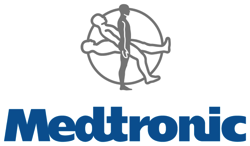
Medical technology developer Medtronic, Inc. recently completed an application submission to the U.S. Food and Drug Administration (FDA) regarding the pre-market approval of their SynchroMed II implantable drug infusion system, which includes a new catheter design. The system is intended to be used by pulmonary arterial hypertension (PAH) patients for the intravenous delivery of the drug Remodulin (treprostinil), which is being developed by the United Therapeutics Corporation.

Imagine, a quick pinprick on the sidelines of a football game that could tell athletes whether they’ve concussed. Arizona startup BioDirection is developing a point-of-care device that diagnoses minor brain injury quickly – in 60 to 90 seconds – with just a single drop of blood.